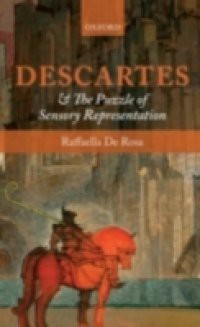While much has been written on Descartes' theory of mind and ideas, no systematic study of his theory of sensory representation and misrepresentation is currently available in the literature. Descartes and the Puzzle of Sensory Misrepresentation is an ambitious attempt to fill this gap. It argues against the established view that Cartesian sensations are mere qualia by defending the view that they are representational; it offers a descriptivist-causalaccount of their representationality that is critical of, and differs from, all other extant accounts (such as, for example, causal, teleofunctional and purely internalist accounts); and it has the advantage of providing an adequate solution to the problem of sensory misrepresentation within Descartes' internalisttheory of ideas. In sum, the book offers a novel account of the representationality of Cartesian sensations; provides a panoramic overview, and critical assessment, of the scholarly literature on this issue; and places Descartes' theory of sensation in the central position it deserves among the philosophical and scientific investigations of the workings of the human mind.

